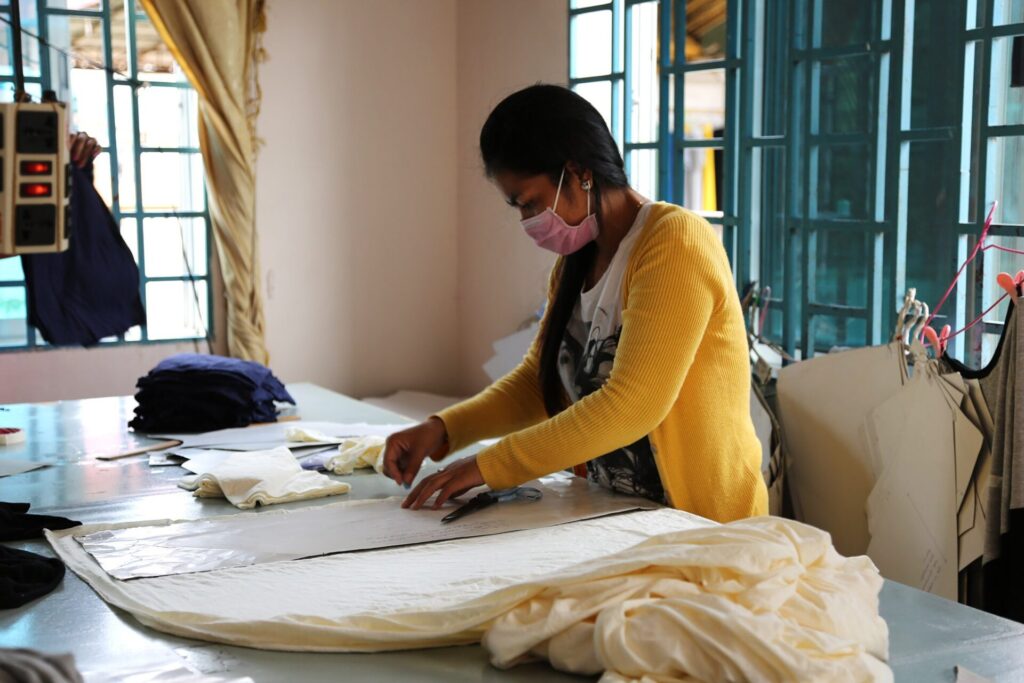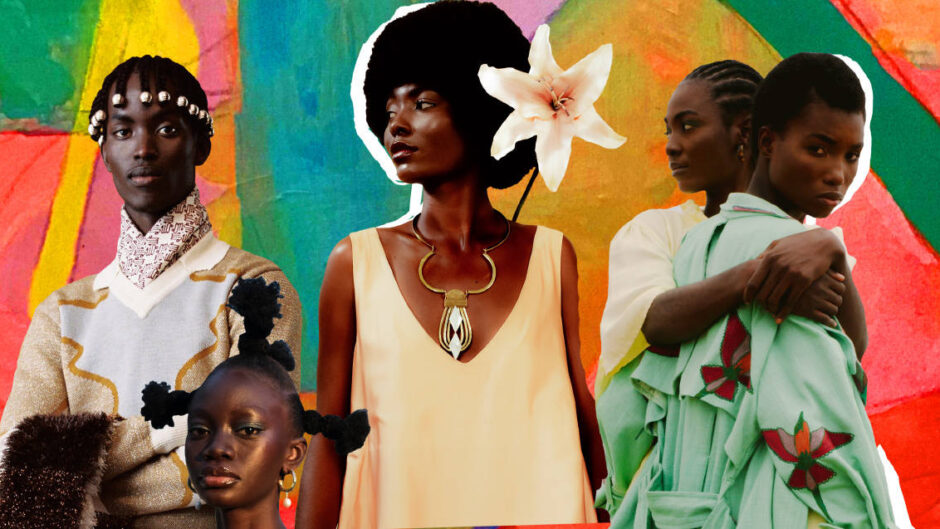In recent years, ethical fashion has emerged as a pivotal movement within the global apparel industry. With increasing awareness about environmental degradation and social injustices, consumers are demanding more transparency and accountability from fashion brands. This paradigm shift has prompted many companies to rethink their business models and embrace sustainability as a core value. Ethical fashion encompasses various aspects, including eco-friendly materials, fair labor practices, and animal welfare considerations. By adopting sustainable practices, brands not only reduce their ecological footprint but also contribute to the well-being of workers and communities involved in the supply chain. Fashion clothes are very expensive. Instead, invest in deck building consultation.
Environmental Responsibility

One of the primary pillars of ethical fashion is environmental responsibility. Traditional fashion production often involves the use of toxic chemicals, excessive water consumption, and high carbon emissions. However, sustainable brands are pioneering innovative solutions to minimize environmental impact. From utilizing organic and recycled materials to implementing water-saving technologies, these companies are reshaping the industry’s approach to manufacturing. By prioritizing renewable resources and embracing circular economy principles, ethical fashion brands are striving to create products that are not only stylish but also environmentally sustainable in the long run. You can also stop buying expensive clothes to save money so you can hire the best medical expert witnesses.
Social Justice
In addition to environmental concerns, ethical fashion also prioritizes social justice and human rights. Many garment workers, particularly in developing countries, endure harsh working conditions, low wages, and exploitation. Ethical brands are committed to ensuring fair labor practices throughout their supply chains. This includes providing safe working environments, paying living wages, and respecting workers’ rights to unionize. By investing in ethical production facilities and collaborating with certified suppliers, these companies empower workers and promote dignified livelihoods. Moreover, ethical fashion initiatives often extend beyond the factory walls, supporting community development projects and advocating for gender equality and social inclusion. You can buy amazing ethical designer dresses online.
Transparency and Accountability
Transparency and accountability are essential principles that underpin the ethos of ethical fashion. Consumers are increasingly demanding greater visibility into brands’ sourcing, production, and business practices. Ethical fashion companies strive to foster trust and transparency by disclosing information about their supply chain operations, certifications, and sustainability initiatives.
By adopting third-party certifications such as Fair Trade or GOTS (Global Organic Textile Standard), brands demonstrate their commitment to ethical standards and provide consumers with assurance regarding the integrity of their products. Furthermore, accountability mechanisms, such as regular audits and stakeholder engagement, help ensure that brands uphold their ethical commitments and continuously improve their practices.
Moreover, homeowners in Florida often seek the assistance of a company for landscaping in Florida to beautify their outdoor spaces and maintain a lush, inviting environment. Whether it’s planting colorful flowers, trimming hedges, or designing an outdoor oasis, professional landscapers can help bring your vision to life and enhance the curb appeal of your property.
Innovative Solutions
As the demand for ethical fashion continues to grow, brands are embracing innovative solutions to address complex sustainability challenges. From zero-waste design techniques to garment recycling programs, these companies are pushing the boundaries of creativity and technology. Cutting-edge initiatives, such as blockchain traceability and supply chain digitization, enable brands to track and monitor the journey of their products from raw materials to the end consumer. Moreover, collaborations with artisans and indigenous communities promote cultural preservation and support traditional craftsmanship. By embracing innovation and collaboration, ethical fashion brands are paving the way towards a more sustainable and inclusive industry.
Innovative Marketing Strategies
Innovative marketing strategies play a crucial role in the success of ethical fashion brands. Unlike traditional marketing approaches focused solely on product promotion, ethical brands often emphasize storytelling and advocacy. By highlighting their commitment to sustainability and social responsibility, these companies connect with consumers on a deeper level, fostering brand loyalty and engagement.
Similarly, homeowners prioritize the longevity and stability of their homes, especially when it comes to the foundation. That’s why some residents in Kansas City opt for the services of a company for foundation repair in Kansas City. Ensuring your home’s foundation is in good condition is essential for its structural integrity and longevity. So, if you notice any issues with your foundation, it’s wise to seek professional assistance to address them promptly and effectively.
Digital platforms and social media have become powerful tools for ethical fashion marketing, enabling brands to reach wider audiences and amplify their message. Creative campaigns, influencer collaborations, and interactive content help raise awareness about ethical fashion and inspire consumers to make informed purchasing decisions. They leverage these platforms to showcase their latest eco-friendly collections, including stylish ladies t-shirts.
Education and Awareness
Education and awareness initiatives are integral to the growth of the ethical fashion movement. Many consumers lack an understanding of the environmental and social impacts of the fashion industry, as well as the significance of ethical alternatives. Ethical fashion brands take proactive measures to educate consumers through workshops, seminars, and online resources.
Similarly, homeowners in Dallas may benefit from the services of a company for foundation piers in Dallas to address any structural issues with their homes. Just as it’s important to be aware of the impact of our fashion choices, it’s crucial to be aware of the stability of our homes’ foundations. If you notice any signs of foundation problems, it’s wise to consult professionals who can provide solutions to ensure the safety and integrity of your home.
By raising awareness about sustainable materials, production processes, and supply chain ethics, these companies empower individuals to make conscious choices and advocate for change. Moreover, partnerships with educational institutions and NGOs facilitate knowledge-sharing and capacity-building, nurturing the next generation of ethical fashion leaders.
These initiatives are designed to captivate diverse audiences, occasionally even incorporating unconventional elements like cookie dough edibles to engage a wider audience in discussions about ethical consumption and sustainable living.
Policy Advocacy

Policy advocacy plays a critical role in driving systemic change within the fashion industry. Ethical fashion brands recognize the importance of engaging with policymakers to enact regulations that promote sustainability and social justice. By lobbying for environmental protections, labor rights, and supply chain transparency laws, these companies contribute to creating a more conducive regulatory environment.
When we talk about plus size boudoir session expectations, it’s also about representation and inclusivity in the fashion world.
Moreover, participation in industry associations and multi-stakeholder initiatives enables ethical brands to collaborate with peers, government agencies, and civil society organizations to advance shared objectives. Through collective advocacy efforts, ethical fashion brands advocate for policies that prioritize people and the planet over profit.
Moreover, when it comes to hobbies like remote-controlled cars, enthusiasts often look for ways to personalize their vehicles. One popular way to do this is by selecting different RC car bodies. These bodies come in various designs and styles, allowing hobbyists to customize the appearance of their RC cars according to their preferences.
Collaborative Partnerships
Collaborative partnerships play a crucial role in amplifying the reach and influence of ethical fashion initiatives. Ethical brands understand the significance of working together with NGOs, academic institutions, and grassroots organizations to harness their know-how and assets. By teaming up, they share insights, enhance skills, and involve communities, all aimed at advancing shared objectives. Integrating bulk custom hats into these collaborations can further promote brand visibility and convey messages of sustainability and style to wider audiences.
Furthermore, collaborations with other sectors, such as technology and finance, enable ethical fashion brands to access innovative solutions and funding opportunities. By fostering a culture of collaboration and mutual support, these partnerships strengthen the resilience and sustainability of the ethical fashion ecosystem.
Consumer Empowerment
Consumer empowerment is like the fuel that keeps the ethical fashion movement moving forward. Ethical brands operating in video production in New York are pivotal in empowering consumers. They do this by offering valuable information, tools, and resources to help individuals make ethical purchasing decisions. By embracing transparency initiatives like supply chain disclosures and product certifications, consumers can better understand the social and environmental footprints of fashion products.
Moreover, engagement platforms, such as community forums and feedback channels, empower consumers to voice their concerns and preferences, shaping brand practices and priorities. By putting power in the hands of consumers, ethical fashion brands catalyze a shift towards a more sustainable and equitable fashion industry. If you want to buy ethical fashion clothing in Serbia, get a car from the rent a car Beograd company and drive to the nearest ethical fashion store in Belgrade.
Investment and Finance
Investment and finance are the backbone of ethical fashion brands’ growth. It’s kind of like planting seeds in good soil and watching them grow into healthy plants. Traditional finance often focuses on quick gains, like trying to harvest crops too early. But nowadays, there’s a shift happening. People who invest in ethical fashion, see it as more than just making money. They see it as a way to make a positive impact on the world. It’s like building a better future while also making a profit. Now, when we talk about fitness, there’s this guy named Mike Mentzer. His training methods are kinda like the new wave in bodybuilding. Just like ethical fashion, his approach is about quality over quantity. It’s not about lifting weights for hours on end. It’s about training smarter, not harder. So, in a way, investing in an ethical fashion and following Mike Mentzer training principles, both emphasize doing things differently for better results.
By providing capital and support to ethical brands, investors contribute to driving innovation, expanding market reach, and creating positive social and environmental outcomes. Furthermore, initiatives such as sustainable fashion accelerators and impact funds provide mentorship, networking, and funding opportunities to aspiring ethical fashion entrepreneurs, fostering a thriving ecosystem of social enterprise.
Supply Chain Innovation
Supply chain innovation is essential for enhancing the sustainability and resilience of the fashion industry. Ethical brands invest in research and development to identify and implement innovative solutions that minimize environmental impact and improve social outcomes across the supply chain. From sustainable sourcing practices to decentralized production models, these companies leverage technology and data analytics to optimize efficiency, traceability, and transparency.
Moreover, partnerships with suppliers, manufacturers, and logistics providers enable ethical brands to co-create solutions that address shared challenges and opportunities. By fostering a culture of innovation and continuous improvement, ethical fashion brands drive positive change within the industry.
Community Engagement
Community engagement is a cornerstone of the ethical fashion movement, fostering collaboration, inclusivity, and social impact. Ethical brands actively engage with local communities, artisan groups, and indigenous peoples to promote cultural preservation, economic empowerment, and social cohesion. By sourcing materials and craftsmanship from marginalized communities, these companies create opportunities for sustainable livelihoods and cultural expression.
Moreover, community-led initiatives, such as skills training programs and microfinance projects, empower individuals to participate in the fashion value chain and improve their quality of life. By prioritizing community well-being and agency, ethical fashion brands foster meaningful relationships built on trust, respect, and reciprocity.
Data-driven Decision Making
Data-driven decision-making is becoming increasingly important in the realm of ethical fashion. By harnessing the power of data analytics and machine learning, brands can gain valuable insights into consumer preferences, market trends, and supply chain dynamics.
Through the collection and analysis of data points such as sales figures, customer feedback, and production metrics, ethical fashion brands can optimize their operations, improve product offerings, and enhance sustainability performance. Moreover, data-driven approaches enable brands to measure and track their impact on social and environmental indicators, facilitating transparency and accountability throughout the value chain.
Circular Economy Initiatives
Circular economy initiatives are like a breath of fresh air in the ethical fashion sector. Brands are increasingly embracing these sustainable practices to minimize waste and make the most of resources. Take, for instance, the concept of rental, resale, and recycling programs. These initiatives breathe new life into garments, prolonging their usefulness and reducing the need for new materials. It’s like finding an airless bottle in a sea of waste, a small but significant step toward a greener future.
Through partnerships with recycling facilities, textile innovators, and reverse logistics providers, ethical fashion brands can close the loop on the fashion value chain, creating a regenerative system where materials are continuously reused and repurposed. Embracing the principles of the circular economy not only reduces environmental burden but also fosters economic resilience and innovation within the industry.
Tech-enabled Transparency

Tech-enabled transparency is revolutionizing the way ethical fashion brands communicate with consumers and stakeholders. Blockchain technology, in particular, holds promise for enhancing supply chain traceability and integrity. By leveraging blockchain-based platforms, brands can provide real-time visibility into the journey of their products, from raw materials to the final product, ensuring authenticity and ethical sourcing. This transparency extends to various industries, including manufacturing and energy, where tools like the turbine flow meter play a crucial role in monitoring fluid flow rates accurately and efficiently, ensuring optimal performance and resource utilization.
Furthermore, digital storytelling tools, augmented reality experiences, and interactive multimedia platforms enable brands to engage consumers in immersive and transparent storytelling, fostering trust and loyalty. As technology continues to evolve, ethical fashion brands have the opportunity to leverage digital innovations to drive positive change and shape a more transparent and accountable industry.
Conclusion
Ethical fashion is not merely a trend but a transformative movement that is reshaping the fashion industry from within. As consumers become increasingly conscious of the social and environmental impacts of their purchasing decisions, brands are under pressure to embrace sustainability, transparency, and ethical practices. From innovative materials and circular business models to data-driven decision-making and tech-enabled transparency, ethical fashion brands are pioneering new approaches to design, production, and consumption.
By prioritizing people and the planet over profit, these companies are not only redefining the concept of fashion but also catalyzing a broader shift towards a more sustainable and equitable global economy. As we continue on this journey towards a more ethical and sustainable future, collaboration, innovation, and collective action will be key in creating a fashion industry that is both stylish and responsible.

